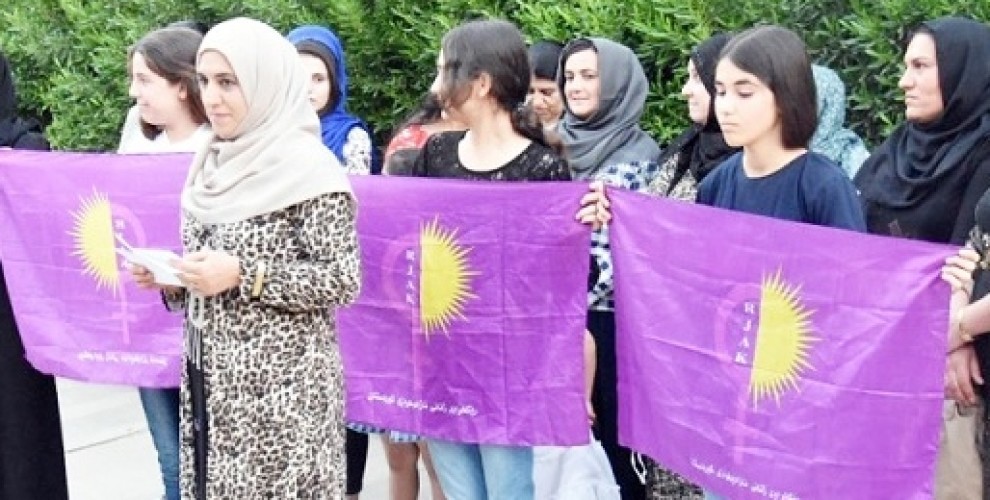Violence against women on the rise in Southern Kurdistan
After the failed independence referendum in Southern Kurdistan a year ago, violence against women has increased. The women's organization RJAK calls for a joint struggle.
After the failed independence referendum in Southern Kurdistan a year ago, violence against women has increased. The women's organization RJAK calls for a joint struggle.

On September 25, 2017, an independence referendum was held in Southern Kurdistan, which was already controversial in advance and consequently catastrophically failed. On 16 October 2017, the Shiite militia Hashd al-Shaabi and the Iraqi military took control of Kirkuk, Tuz Khurmatu, Germiyan, Makhmur and Shengal, while the Kurdish Peshmerga withdrew. In this way Southern Kurdistan lost a large part of its territory.
The change also had a negative impact on the women living in the affected regions. As the Organization of Free Women in Kurdistan (Rêxistina Jinên Azad ên Kurdistanê, RJAK) notes, there have been cases of violence against women, especially in the Tuz Khurmatu region.
"In the Kurdistan region, a woman dies almost daily from murder or suicide. In the patriarchal society, shaped by an occupying mentality, women are the target of power struggles aimed at breaking the will to the freedom of women. Violence against women manifests itself not only in physical and sexual forms, but also in attacks by the occupiers on culture and society,"said a statement by the RJAK.
"Women in Southern Kurdistan and Iraq must take a stand against violence against women. As Kurdish women, we must oppose the occupying forces that attack us and our country. Kurdistan is experiencing a very critical time in which we cannot remain silent. We call on the entire Kurdish people to act together against violence."